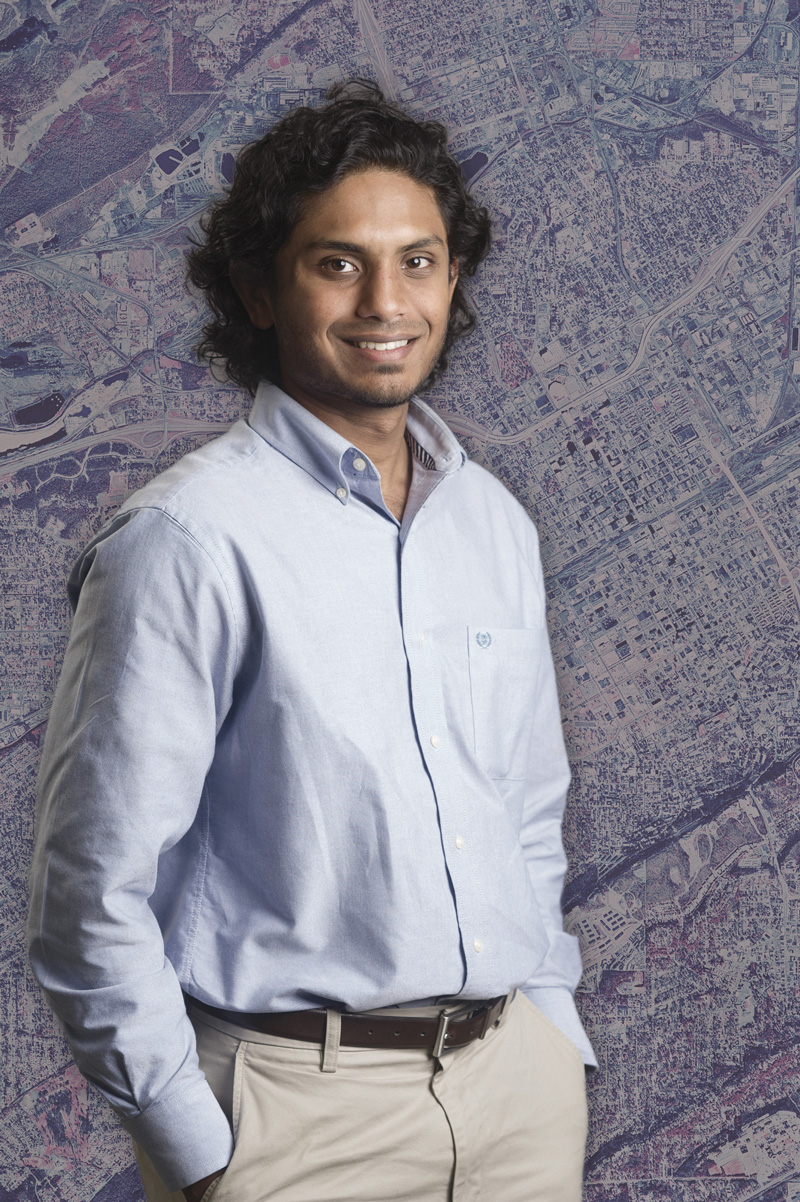 Swaroop Vitta’s summer research project took him all the way to downtown Birmingham. There, just blocks from UAB, he entered the world of the homeless to learn how they receive health care and the difficulties they face in accessing treatment.
Swaroop Vitta’s summer research project took him all the way to downtown Birmingham. There, just blocks from UAB, he entered the world of the homeless to learn how they receive health care and the difficulties they face in accessing treatment.“Standing behind the gate at a soup kitchen is completely different from talking with these individuals,” says Vitta, a second-year student from Hoover who had previously worked with the National Alliance to End Homelessness. His survey asked homeless men and women of all ages about the local services they use for primary and specialty care and dental and mental health, and which providers they seek out, from government-funded entities and nonprofits to private hospitals.
Reassessing Everything
Vitta’s project, funded by the Arnold P. Gold Foundation, follows a similar survey completed three years ago by Stefan Kertesz, M.D., a UAB associate professor of Preventive Medicine, and medical student Whitney McNeil. Since then, however, Jefferson County has shut down many services at its Cooper Green hospital, and the economy has suffered. More positive developments include the opening of Equal Access Birmingham’s downtown clinic, where UAB medical students care for uninsured patients.“We want to reassess everything,” Vitta says. “It’s important to not let a part of society fall through the cracks in health care. We can work for homelessness in a number of ways—education and housing, for example—but as long as people face health problems, particularly chronic or harder-to-treat issues, they’re not going to be able to progress as far as settling down. Nobody is fully functioning when his or her health is deteriorating.”
To conduct the survey, Vitta visited four local homeless shelters to talk with residents—an intimidating experience at first, he says. “They may not like it in the shelter, but they are comfortable there and wary of what we’re doing,” he explains. “You have to build a level of trust with a population that has been lied to, pushed away, and marginalized.” To smooth the introduction, Vitta spent a week walking around each shelter and meeting residents before discussing their health care. He soon became a familiar face; after a few weeks, “there were a few people who thought I was just one of the residents.”
Confusion and Challenges
Early analysis of the survey results yielded a major concern about Cooper Green. “While plenty of services are still offered there, they are not being utilized because people are confused about what is available,” Vitta says. “People who were eligible and enrolled have no idea if they can go back. They’re not going back to clinics even if they have a primary care provider.”Other results outlined the challenge that homeless individuals face in finding dental care—something that surprised Vitta. Few providers accept uninsured patients, and some clinics claiming they do simply pull teeth instead of treating them, he says. The problem is an important one to address “because people who haven’t taken care of their teeth in so long can get bad abscesses that can lead to bad infections, heart problems, and sepsis.”
Vitta hopes to take the key findings from his survey to policymakers who can help strengthen Birmingham’s health care safety net. The current environment of change presents new opportunities, he explains. “If there are things we can change immediately, we want to push for them.”
The summer research project also could make a lasting impact on his future career as a primary care physician. Vitta says he has gained the confidence and skills to develop relationships with “all the different types of people in the community at an intimate level, and with that knowledge, I can be an advocate for them.”
In addition, “exposure to a marginalized community helps us to understand ourselves and our own perspectives, biases, and stereotypes before we get into a clinical setting and those become barriers to forming patient relationships,” Vitta says. “A patient may be in a situation for reasons we may not know, and we can’t be judgmental about it.”
This story originally appeared in the Winter 2014 edition of UAB Medicine Magazine.